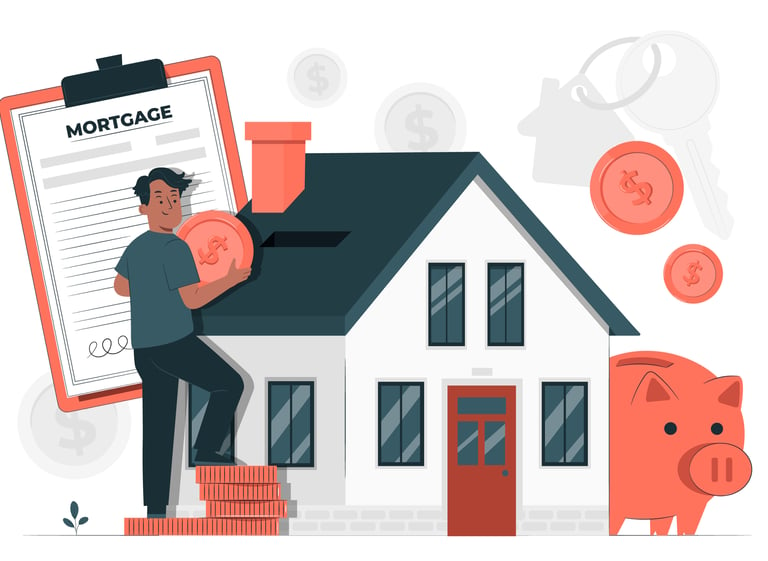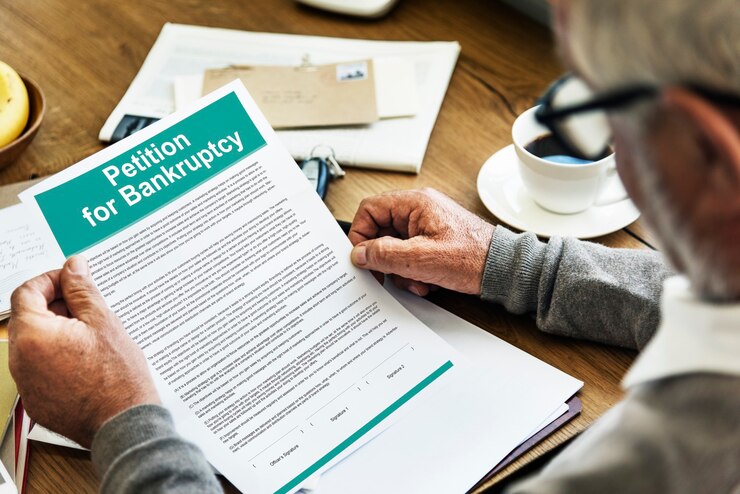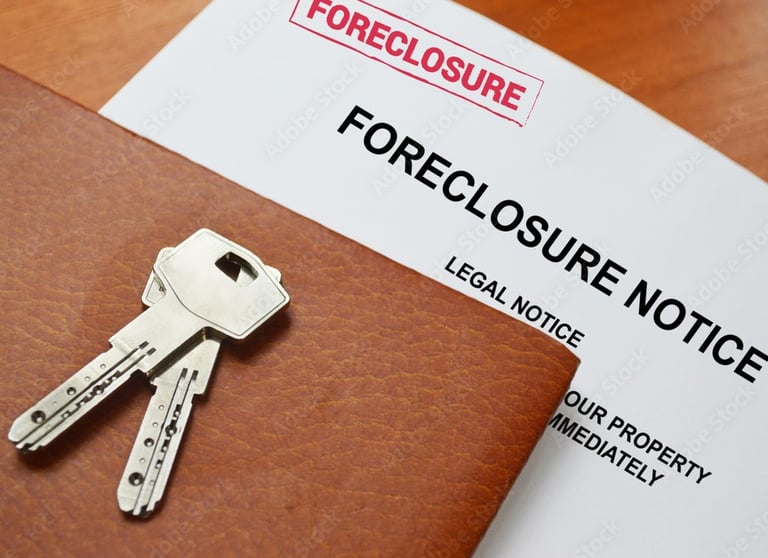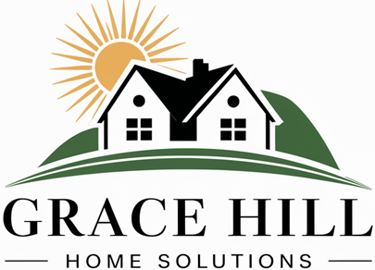Best Strategies on How to Avoid a Foreclosure
Facing foreclosure? Here you'll find clear information, tools and resources to understand the foreclosure process


Are you facing foreclosure?
Learn how to avoid foreclosure with practical steps like communicating with your mortgage lender, considering loan modifications, or exploring forbearance options. Stay informed to protect your home. Have you had trouble paying your mortgage lately?
At Grace Hill Solutions, we're here to help you through the pre foreclosure process at no cost. If you've been forced to stop paying your lender, why would we ask for money from you? We genuinely want to help you through this difficult time!
Key Takeaways
Early communication with your lender is key to exploring options and preventing foreclosure, especially if you haven't made a mortgage payment in at least 3 months.
Utilize mortgage forbearance or loan modification programs to manage payments and avoid long-term financial distress.
Our primary goal for you is to stop foreclosure immediately or as soon as possible at no cost. We will work with you to contact your lender immediately, determine the principal owed, and start the resolution process
Early Communication with Your Lender
When financial difficulties with mortgage debt arise, promptly contacting your lender is essential. Delaying can lead to missed chances to resolve the issue before it escalates into foreclosure. Early engagement with your lender increases the chances of finding a solution to keep you in your home and stop foreclosure.
Communicating with your lender before missing payments allows for a discussion of potential solutions like repayment plans and loan modifications. Keep records of all communications to track the resolution process and ensure proper follow-up. Your lender might offer options like mortgage forbearance, which provides temporary relief from monthly payments due to financial hardship.
Your lender must contact you within 36 days after a missed payment to discuss options for avoiding foreclosure. Prompt communication can help mitigate additional fees that accumulate when payments are missed. Immediate action creates an opportunity to negotiate and halt the foreclosure process before it becomes irreversible. Quick lender contact can also help reduce your remaining debt
Exploring Mortgage Forbearance Options
Mortgage forbearance can be a lifeline for homeowners experiencing short-term financial difficulties. This option lets you temporarily suspend or reduce mortgage payments, providing time to recover without the immediate threat of foreclosure. However, forbearance is not debt forgiveness; you will still owe the total amount of the deferred or reduced payments.
To qualify for forbearance, homeowners must contact their lender and provide proof of financial hardship. The terms, such as the payment amount and duration of the forbearance period, can vary depending on the lender and the type of mortgage. If your request for forbearance is denied, you have the right to appeal the decision for re-evaluation.
Once the forbearance ends, homeowners must repay the missed payments. This can be done through a lump-sum payment, a repayment plan, or extending the loan term. Understanding the implications and planning for repayment is crucial to avoid falling back into financial distress. Promptly contacting your lender can offer options to manage your mortgage and potentially stop foreclosure
Implementing a Repayment Plan
A repayment plan can be an effective solution for catching up on missed mortgage payments. This plan involves adding the missed payments to your regular monthly payments, allowing you to gradually catch up on arrearages without the need for a lump-sum payment.
To set up a repayment plan, contact your lender to discuss your financial situation and ability to make adjusted payments. Be honest about your financial capabilities to help your lender create a realistic and manageable plan for you.
For short-term financial setbacks, your lender might offer a plan to pay the late payments in installments
Loan Modification Programs
Loan modification programs are designed to make your mortgage loan payments more manageable by changing the terms of your mortgage. This can include lowering your interest rate, extending the amortization schedule, or even forgiving a portion of the principal. These modifications aim to reduce your monthly mortgage payments and help you stop foreclosure.
To qualify for a loan modification, demonstrate that your financial difficulties are temporary and manageable under modified loan terms. Various government programs, like Fannie Mae's High Loan-to-Value Refinance Option, can assist in modifying your loan. Working with your lender to adjust the loan terms can provide the relief needed to keep your home.


Considering a Short Sale
A short sale allows you to sell your property for less than what you owe on the mortgage, with the lender’s consent, as an alternative to a foreclosure sale. In this process, the lender agrees to forgive the remaining loan balance after the sale. This is a viable option if you are unable to keep up with mortgage payments and cannot sell your home for the full loan amount.
To initiate a short sale, prepare a hardship letter detailing your financial struggles and secure the lender's approval. We have real estate professionals on our team who help navigate the negotiations and paperwork involved. A Comparative Market Analysis (CMA) may also be required to determine the property's fair market value. We'll do the legwork with your mortgage company to find a solution and stop the foreclosure.
One of the primary advantages of a short sale is that it is generally less damaging to your credit score compared to a foreclosure. Additionally, it allows you to maintain some control over the sale process, which can be empowering during a challenging time.
Deed in Lieu of Foreclosure
A deed in lieu of foreclosure is another option available to homeowners who cannot sell their home before foreclosure. This process involves voluntarily transferring property ownership to the lender to settle the mortgage debt. It is considered a method of loss mitigation, helping both the lender and the homeowner avoid the lengthy and costly foreclosure process.
While a deed in lieu of foreclosure can be less damaging to your credit than foreclosure, it still has a negative impact. Depending on lender rules and state regulations, homeowners may not be held personally responsible for any leftover mortgage balance after executing a deed in lieu.
This option can help you stop the foreclosure while moving forward with potentially less financial burden
Filing for Bankruptcy
Bankruptcy can offer temporary relief from foreclosure proceedings. Filing for bankruptcy activates an automatic stay, halting foreclosure as long as the bankruptcy remains in effect. This can provide the breathing room needed to reorganize your finances and catch up on late payments.
Chapter 7 bankruptcy offers temporary relief, but Chapter 13 bankruptcy allows homeowners to create a repayment plan to catch up on missed mortgage payments over three to five years. This structured approach can provide a more sustainable solution for avoiding foreclosure.
However, if multiple bankruptcies are filed within a year, the automatic stay may be limited to 30 days unless extended by the court.
Although bankruptcy is technically an option to avoid home foreclosure, we don't believe it's the best option. When you file for bankruptcy, it can have long term negative effects on your credit report, making it difficult to get future loans or rent a home.
Avoiding Foreclosure Scams
Foreclosure scams prey on the desperation and vulnerability of homeowners facing financial hardships. Scammers often promise unrealistic outcomes, such as saving your home or drastically reducing your mortgage payments, in exchange for an upfront fee. Charging advance payments for mortgage modification services is typically illegal, and any company making such demands should raise red flags.
To avoid foreclosure scams, seek assistance from HUD-approved counselors who can provide legitimate help. Do not transfer the deed of your property to anyone without direct involvement from your lender.
Consult an attorney or nonprofit housing counselor before signing any documents with foreclosure prevention companies. Only your mortgage company can approve a loan modification, and third parties cannot guarantee success
Utilizing Government and Nonprofit Resources
Government and nonprofit resources can be invaluable for homeowners looking to stop a foreclosure. Programs like the Federal Housing Administration's (FHA) loss mitigation initiatives are designed to help homeowners insured by the FHA. The U.S. Department of Housing and Urban Development (HUD) offers tools to find local counselors who can assist with foreclosure prevention.
Nonprofit counselors provide free services to help homeowners navigate their financial situations and explore solutions to avoid foreclosure. Counselors can review your financial situation, assess available options, and assist with negotiations with your lender.
Utilizing these resources can provide significant support and guidance during financial hardships. Programs like the Making Home Affordable Program offer options to help homeowners reduce monthly payments and stabilize their loans. Some programs may also offer assistance for relocation expenses through "cash-for-keys" initiatives, providing financial support when leaving a property.
Monitoring Your Personal Finances
Keeping a close watch on your personal finances is crucial to avoiding foreclosure. Prioritize mortgage payments over optional expenses like entertainment and memberships. Cutting unnecessary expenses frees up funds that can be redirected towards mortgage payments. Consider part-time work or selling assets like a second car or jewelry to generate extra income.
Regularly reviewing your personal finance and budget ensures you can meet monthly mortgage payments and stay on track. This proactive approach helps identify potential financial issues early and take corrective actions before they escalate.
Understanding Your Mortgage Rights
Knowing your rights is crucial for homeowners facing financial difficulties. Homeowners often have legal defenses that may go unused without proper legal guidance. Being familiar with your rights helps you make informed decisions and protect against predatory practices during foreclosure proceedings.
Legal guidance is essential for effectively navigating foreclosure defenses and ensuring legal protection. Knowing your rights empowers you to protect your home and financial future, making it an integral part of any foreclosure avoidance counseling strategy.
Summary
Navigating the threat of foreclosure can be challenging, but there are numerous strategies and resources available to help homeowners stay in their homes. From early communication with your mortgage lender to exploring government and nonprofit resources, each step you take can significantly impact your ability to avoid foreclosure. Understanding your mortgage rights, monitoring your personal finances, and seeking legal assistance are all crucial components of a comprehensive foreclosure avoidance plan.
Remember, taking proactive steps and exploring all available options can make a significant difference in your financial future. By staying informed and utilizing the resources at your disposal, you can navigate through financial hardships and work towards maintaining stability in your home






















Refinancing with Hard Money Loans
Refinancing with a hard money loan involves obtaining a loan from a private lender to refinance your mortgage. This option can provide the necessary funds to stop foreclosure, giving you time to stabilize your situation. However, hard money loans come with significantly higher interest rates and fees compared to conventional mortgages, making them a costly solution.
Given the high costs and risks, hard money loans should be considered a last resort. Securing such a loan often requires extensive documentation to prove your ability to repay, even if the monthly payment is higher than your current mortgage. Carefully evaluate your financial circumstances and explore other options before turning to hard money loans.
Frequently Asked Questions
What should I do if I am facing financial difficulties and cannot make my mortgage payments?
It's crucial to contact your mortgage lender right away to explore options like repayment plans or loan modifications. Addressing the issue early can help prevent foreclosure and lead to a manageable solution. Making frequent phone calls to your lender is key to keeping communication lines open.
What is mortgage forbearance, and how does it work?
Mortgage forbearance is a temporary relief option for homeowners facing financial difficulties, allowing them to reduce or suspend mortgage payments, usually for up to one year. Homeowners are required to repay the late payments once the forbearance period concludes.
How can a foreclosure attorney help me?
A foreclosure attorney can provide crucial guidance on your legal rights, help navigate the foreclosure process, and explore potential defenses to help you avoid court. Their expertise can significantly impact your options during this challenging time.
How can a bankruptcy attorney help me?
A bankruptcy attorney can help you file Chapter 13 bankruptcy and will run through the court system, buying you time to get your loan current. While they can help you understand foreclosure laws, their services can be expensive. Utilizing this option may not help lower monthly payments.
What are common foreclosure scams, and how can I avoid them?
To avoid common foreclosure scams, be cautious of offers that promise to save your home or reduce payments for upfront fees. You have the option to consult HUD-approved housing counselors and refrain from transferring your property's deed without your mortgage lender's direct involvement.
What government and nonprofit resources are available to help avoid foreclosure?
To avoid foreclosure, homeowners can access resources like the FHA's loss mitigation programs and the Making Home Affordable Program, which help reduce monthly payments. Additionally, HUD-approved housing counselors and nonprofit organizations offer free assistance to navigate financial challenges.
